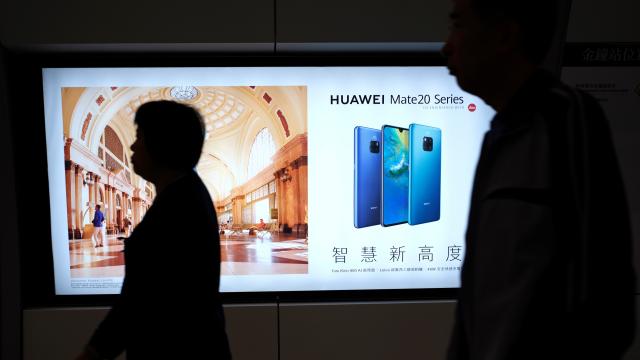The Huawei executive detained in Canada for extradition to the U.S. over allegations of financial fraud and sanctions violations, Meng Wanzhou, has been released on $10 million bail, CNN reported on Tuesday.
Meng, the chief financial officer of Huawei and the daughter of its founder Ren Zhengfei, could face decades in prison if she is extradited to the U.S. and convicted over allegations she lied to financial institutions to help clear transactions that violated international sanctions on Iran. Prosecutors claim Meng lied to the banks as part of a scheme to help the Hong Kong-based Skycom, which they say is a de facto Huawei subsidiary, attempt to sell embargoed HP gear to Iranian telecoms. For her part, Meng insists that Huawei cut ties with Skycom in 2009.
According to CNN, Meng has agreed to surrender her passports, pay for a 24-7 security detail for her home in Vancouver, and wear a GPS tracking ankle bracelet. She will also be required to remain in the Vancouver residence between 11:00 p.m. and 6:00 a.m. each day.
Meng’s defence team insisted she is not a flight risk, as fleeing would humiliate her, her father, Huawei, and the Chinese government. CNN wrote that her lawyers also struck a deal in which other Canadians who know her would put down collateral towards the $10 million bail:
On Tuesday, Meng’s legal team proposed that the terms of her release could include financial pledges from people in Canada who know her, such as a realtor and insurance agent. Together they pledged more than $3 million in home equity and cash, which they’d owe if Meng flees. Her husband also offered to put up the couple’s two houses in Vancouver.
The judge agreed to those terms. Of Meng’s $10 million bail, $3 million of that is pledged by her sureties. The other $7 million is a cash deposit from Meng.
Meng’s case has drawn international attention because it comes amid a U.S.-China trade war that only recently came to a shaky truce (more of a pause in escalation as a 90-day negotiation on the most sensitive issues continue). Her arrest has reportedly sparked widespread anger in China, particularly among the rich and influential, in large part because they suspect the arrest was a naked power grab designed to hobble one of the nation’s biggest companies and its ambitions to become a global telecommunications powerhouse. Chinese officials have warned of “grave consequences” if Meng is not released.
While the Chinese government is also reportedly trying not to let the issue contaminate the entire negotiation process, it’s still increasing the inherent tension of the talks—and turning up the heat further, some White House officials have already brought up the possibility that Meng could be used as leverage. If they actually do that, Slate noted, the likeliest response from China would be outrage at “an extraordinary breach of diplomatic convention” and the perception that the U.S. had taken a literal hostage. (Donald Trump recently suggested he would intervene in the case “if it’s good for what will be certainly the largest trade deal ever made” in what he probably thought was a show of magnanimity, but is really only likely to reinforce suspicions he plans to use Meng as a bargaining chip.)
Canada says it is only complying with the terms of extradition treaties, and officially, the U.S. says that the timing of the arrest is unrelated to the trade talks. As the Washington Post noted:
Though the timing appears to be a coincidence — the warrant for Meng’s arrest was dated Aug. 22 — China sees the case as a bid to secure leverage in the ongoing U.S.-China trade war and has called for Meng’s immediate release.
An intervention by Trump would seem to confirm China’s suspicion that this is not a legal proceeding but a political negotiation, potentially changing the terms of the conflict.
Additionally, U.S. intelligence agencies have alleged (with little hard evidence) that Huawei and other Chinese companies like ZTE may be rigging their products for corporate or state espionage. For years, Huawei has been rapidly expanding its telecommunications and 5G businesses in foreign markets, and the U.S. and some of its allies have responded by shutting out Huawei from network expansions and government purchases.
If Meng is extradited, the process is likely to take a minimum of months—as CNN noted, the U.S. has 60 days from the date of her Dec. 1st detention to provide a “formal extradition request and supporting documents,” and Canadian courts will have 30 days to consider it. But the legal battle could potentially drag on for years as Meng exhausts multiple rounds of appeals. Her lawyers could potentially prevent transfer if Canadian courts agree that the arrest was motivated by political pressure or racial bias.
Some executives from both the U.S. and China are increasingly wary about travel between the two countries for fear of retaliatory arrests, Bloomberg wrote.
In a bizarre twist, the Canadian Press reported unknown individuals broke into Meng’s home on Sunday, but fled after being confronted by someone inside. Police are reportedly investigating the incident but have not yet released any details.
[CNN]
